One Simple Trick to Master Banana Effortlessly!
In April this year, "Banana" was launched. In just over a month, it accumulated over 4,000 reviews on Steam, with a 90% positive rating. As of writing, the game's concurrent player count remains in the top ten on the platform!
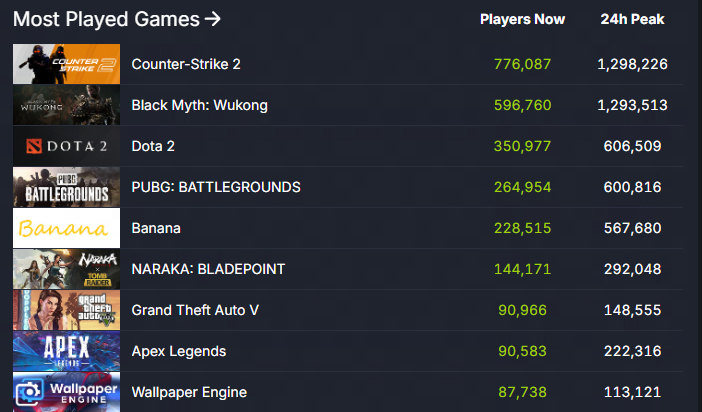
Compared to the long-standing popular games on Steam, "Banana" seems deceptively simple yet philosophical, making it hard to tell if those leaving positive reviews truly enjoy the game. A basic banana and a string of white numbers—is essentially all "Banana" offers, as shown in the screenshot below:
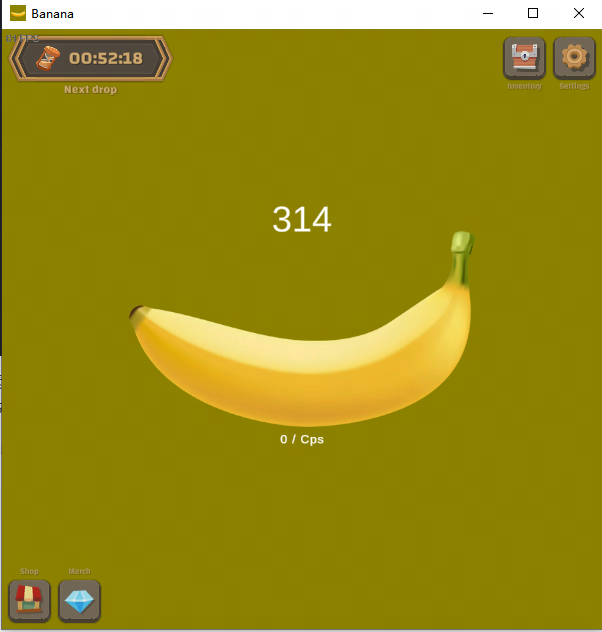
In this game, players can only click the banana in the center of the screen with their mouse. Each click increases the white number on the banana by one, and that's it. There are no instructions, end goals, or rewarding feedback, yet this seemingly crude game has received "very positive" reviews on Steam. Since late May, its player count has steadily increased, now reaching the top ten. How does a game about a content-less banana earn such praise—is it just a gimmick?
The appeal of "Banana" lies not within the game itself but in the broader player community. You might be familiar with Steam's card system, where some games drop collectible cards that can be traded, and when completed, can be turned into badges for display. It's an innovative attempt at social interaction on Steam.
In "Banana," however, the game drops not cards, but virtual bananas with different skins. According to official information, the game produces a common banana every 3 hours and a rarer one every 18 hours for players.
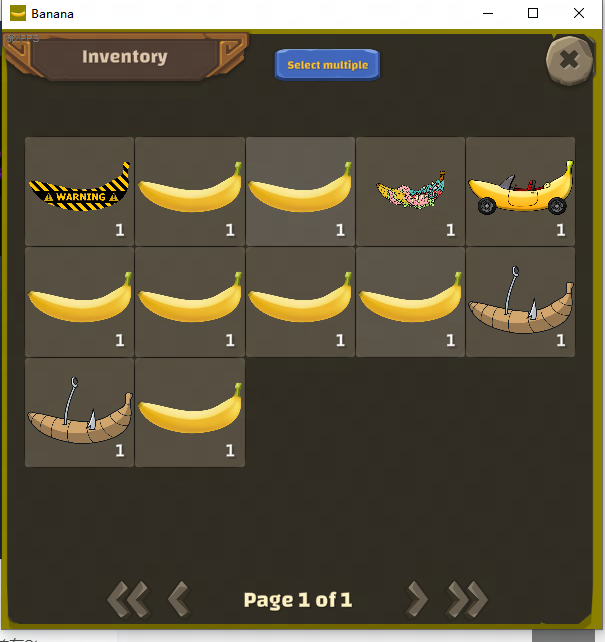
What can you do with these flashy virtual bananas? The answer is nothing. Like NFTs, these virtual bananas are tradeable items on the Steam market. Currently, the market has common bananas worth just a few cents with tens of thousands in stock, and ultra-rare bananas priced in the thousands, with less than ten in existence. Many players dream of getting rich quick, hoping for rare bananas, especially since the game is free, leading to a surge in this "banana trading" craze.
But like a lottery, most players in "Banana" won't get rare bananas. For example, I got a classic Dog meme banana worth 0.03 yuan on the first day, and a slightly better Icenana priced at 5 cents. Considering you can get two to three bananas a day, it's unlikely to even cover the electricity costs of your PC.
Has anyone actually made money from bananas? Yes, but if you want to get rich in "Banana," relying on the daily banana drops to gamble on luck is inefficient. Savvy players have realized more practical strategies—buying low, selling high, hoarding, price manipulation, and more. The banana game's trading market now resembles a real stock exchange.
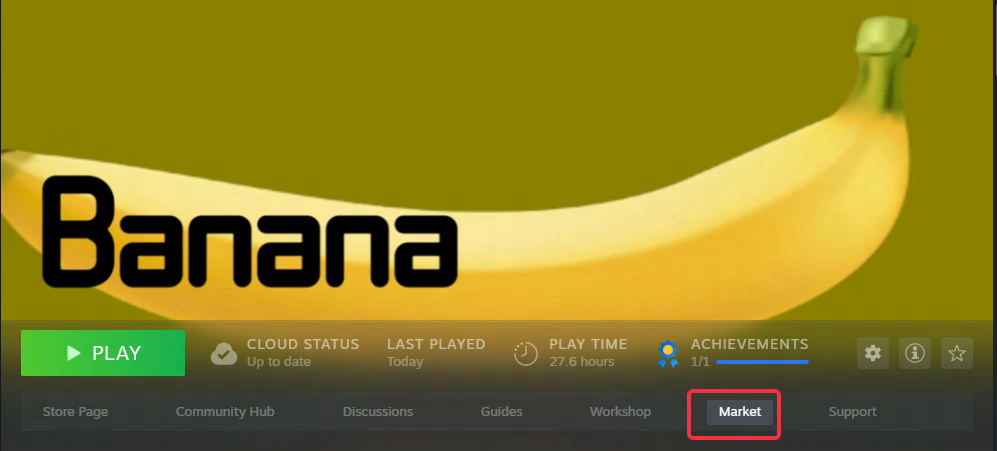
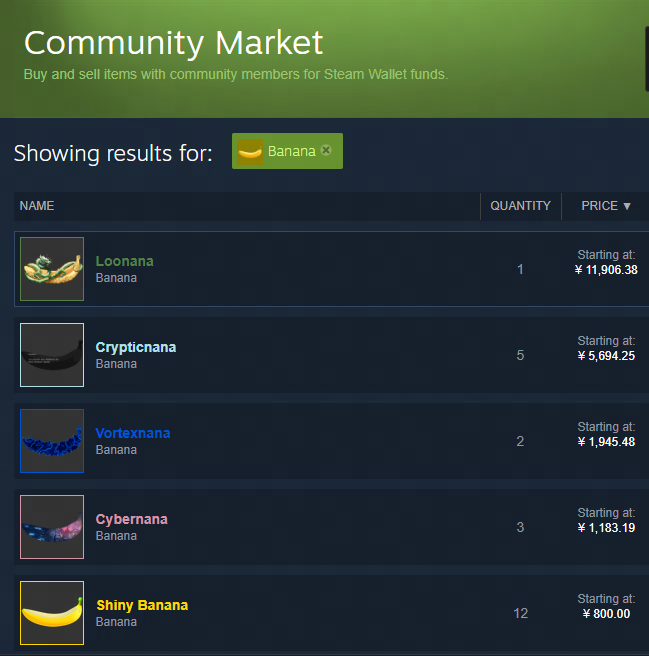
Interestingly, the developers encourage this behavior by creating a dedicated market for player trading!
In the player community, you can find "daily banana stock recommendations," so-called "insiders" sharing first-hand info on future banana price trends; players with foresight snapping up certain bananas; and some even making their first fortune in the banana market. There are even "economists" using charts, formulas, and economic theories to rationalize the economic benefits of bananas.
However, many people can't access the market or even open the game due to regional restrictions. I have a simple solution for you:
Step1. Download and install GearUP Booster.
Step2. Launch and search for Banana.
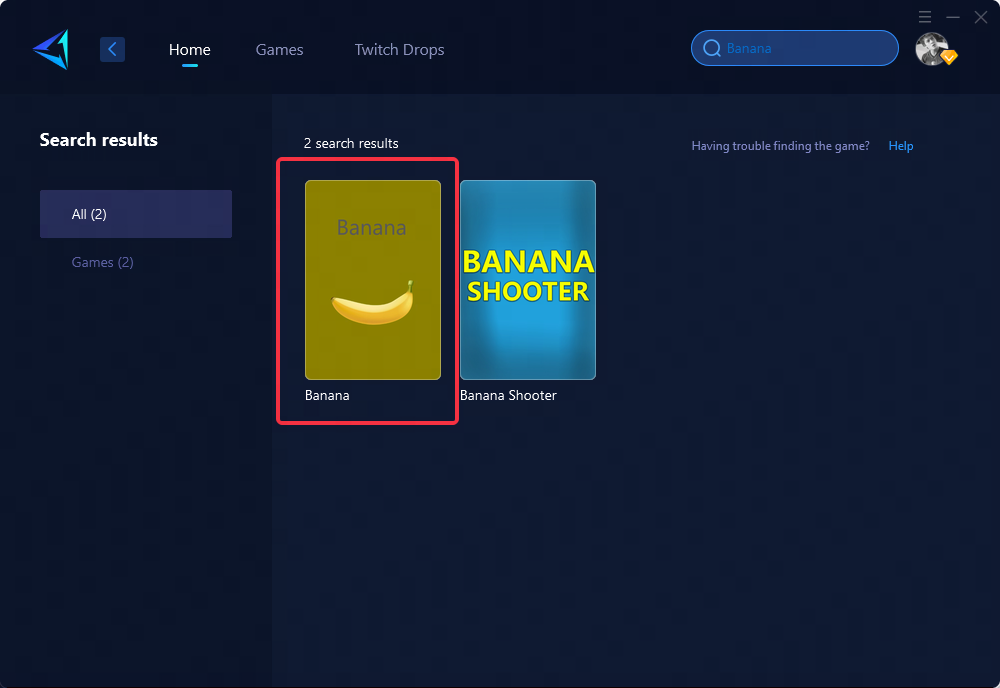
Step 3: Select Game Server, auto means GearUP Booster will automatically select the best server, and you can select the nodes in the boosting interface.
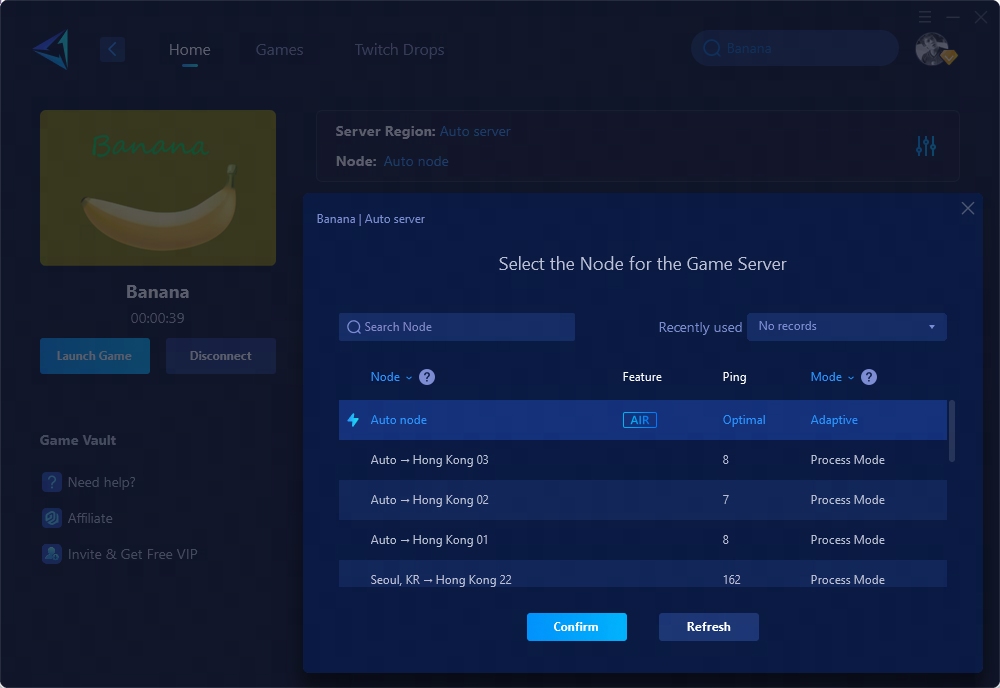
Compared to the huge development costs of typical games, creating a virtual item trading frenzy and profiting from player transactions is clearly more cost-effective. Games like this existed even before "Banana."
For instance, "Egg," released in February this year, is another content-less clicker game that relies on dropping "virtual eggs" and using an aftermarket trading strategy to achieve a 90% positive rating on Steam.
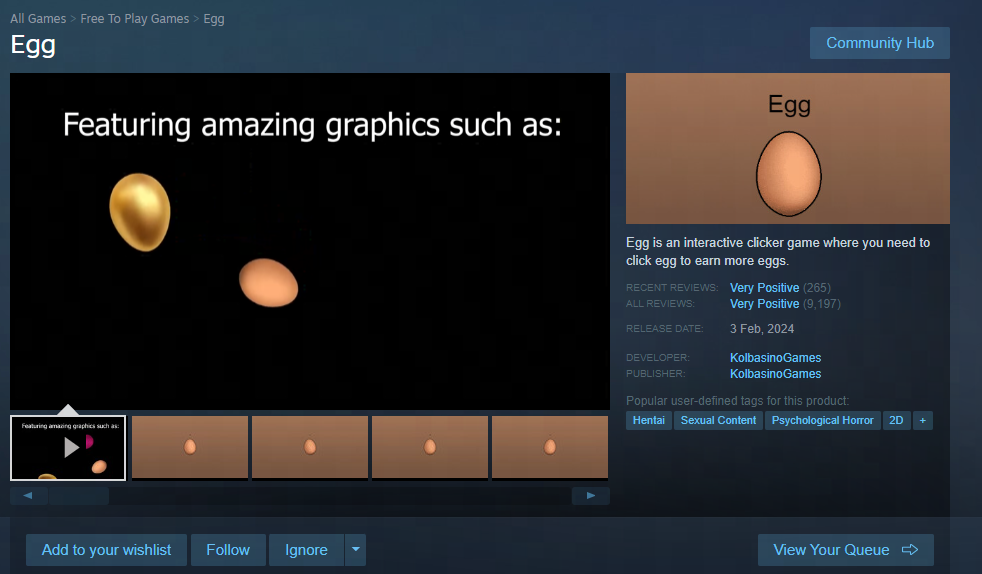
The developer of "Banana" even admitted their game is a "low-quality" version of "Egg."

Many might argue that such rudimentary games shouldn't exist on Steam, but I believe their greatest value lies in this: they seem to bring joy to fun-seekers, meme enthusiasts, cyber speculators, and item traders all within a 20MB free game!
About The Author
The End
